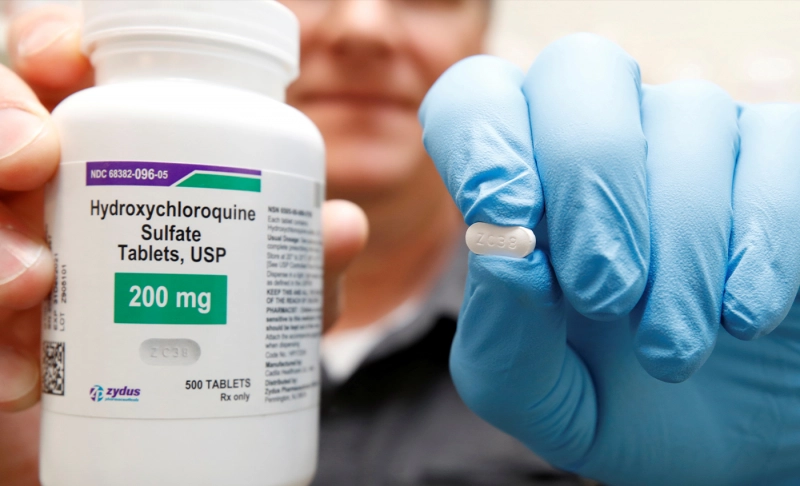By: Ranjini K
July 8 2021

World Health Organization does not recommend hydroxychloroquine and zinc to treat COVID-19 patients. Further studies are required.
World Health Organization does not recommend hydroxychloroquine and zinc to treat COVID-19 patients. Further studies are required. A study titled "Observational Study on 255 Mechanically Ventilated Covid Patients at the Beginning of the USA Pandemic" was published on MedRixv on May 28, 2021. It was conducted by Saint Barnabas Medical Center in New Jersey. The study states that Hydroxychloroquine (HCQ) and Azithromycin (AZM) increase the survival rate in COVID-19 patients. It was conducted on 255 COVID-19 patients who required Invasive Mechanical Ventilation (IMV). During the observation, prior medical conditions of the patients were collected and reviewed. The doses of HCQ and AZM were administered to the patients using computational modeling. After 90 days of observation, more than 70 percent of patients expired who had pre-existing hypertension, diabetes, and obesity conditions. The study mentioned that age was also a factor that accounted for deaths. The study found that patients who received increased doses of co-administered HCQ and AZM or zinc were associated with more than 100 percent survival rate or 2.9 times than other patients who had single doses with either one of the drugs. However, this study has not been peer-reviewed, and it carried the advisory that more clinical studies are required to understand the weighted variance of hospitalized COVID-19 patients. Moreover, the sample size of the study is extremely small to arrive at such conclusions. According to the World Health Organization (WHO), COVID-19 prophylaxis guideline, six random trials were conducted on 6,059 people using linked systematic review and network meta-analysis in North America and Europe. Three trials had participants exposed to a person with COVID-19 infection, and three others had participants without a known exposure. These trials concluded hydroxychloroquine had no effect on the prevention of hospitalization patients, and there was no decrease in deaths. WHO does not recommend hydroxychloroquine for the treatment of COVID-19 or administering it to non-COVID-19 patients. It further states that taking hydroxychloroquine to stop COVID-19 could increase the risk of diarrhea, nausea, abdominal pain, drowsiness, and headache. The National Institutes of Health (NIH) COVID-19 Treatment Guidelines Panel suggests that there is insufficient evidence for the use of zinc in the treatment of COVID-19. It has cited four studies that are conducted on the use of zinc supplementation in COVID-19 patients. They are zinc plus hydroxychloroquine versus hydroxychloroquine alone in hospitalized patients, a randomized trial of zinc versus Ascorbic Acid, an observational study of zinc supplementation in hospitalized patients, and a study that compared hospitalized patients who received zinc plus hydroxychloroquine to those who did not. All these studies showed no significant decrease in symptoms, hospitalization of COVID-19 patients, and adverse reactions found in some patients due to zinc. The NIH panel does not recommend taking zinc supplements for the treatment of COVID-19. NIH's COVID-19 Treatment guidelines state that no specific treatment is currently indicated to prevent or treat COVID-19. Those infected with the virus must be appropriately treated with medical care to alleviate and treat symptoms. Those with severe disease should receive optimized supportive care. The COVID-19 pandemic has given rise to a lot of potentially dangerous misinformation. For reliable advice on COVID-19, including symptoms, prevention, and available treatment, please refer to the World Health Organization or your national healthcare authority.